
Google says COVID-19 themed attacks rising in India, Brazil, and the UK
As widely spread Coronavirus continues to grow across countries, cybercriminals are also unrelentingly targeting individuals and companies with their sabotaging techniques.
In April, Google announced that its free email service Gmail blocked more than 240 million coronavirus-themed spam messages daily and around 18 million phishing and malware emails using COVID-19 as a lure in just one week.
Now, according to Google, they’re seeing an increase in the number of COVID-19 related malware, phishing, and spam emails targeting India, Brazil, and the UK.
“These attacks and scams use regionally relevant lures, financial incentives, and fear to create urgency and entice users to respond,” says Google.
Google has also shared some samples of the phishing emails and spam targeting these countries :
India:
In India, Google saw an increase in the number of scams targeting the Aarogya Setu App (COVID-19 tracking app initiative by the Indian Govt.)
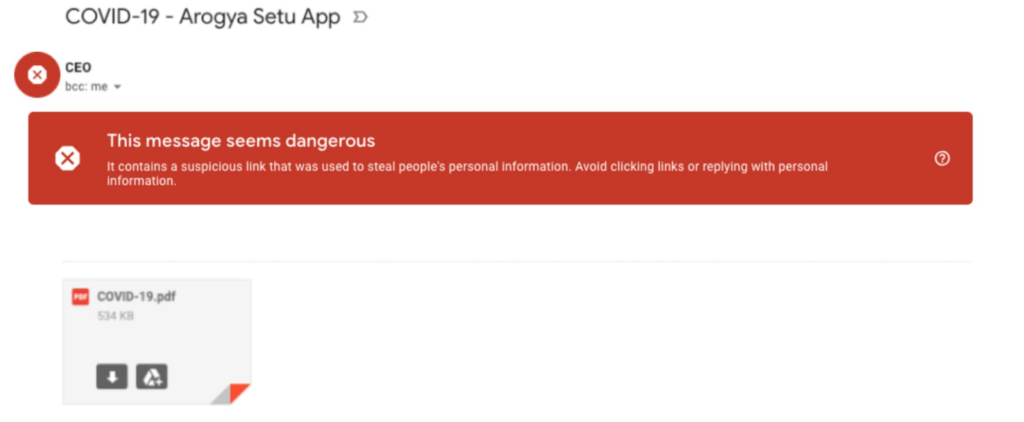
“Also, as India is opening back up and employees are getting back to their workplaces, we’re starting to see more attacks masquerading as COVID-19 symptom tracking”.
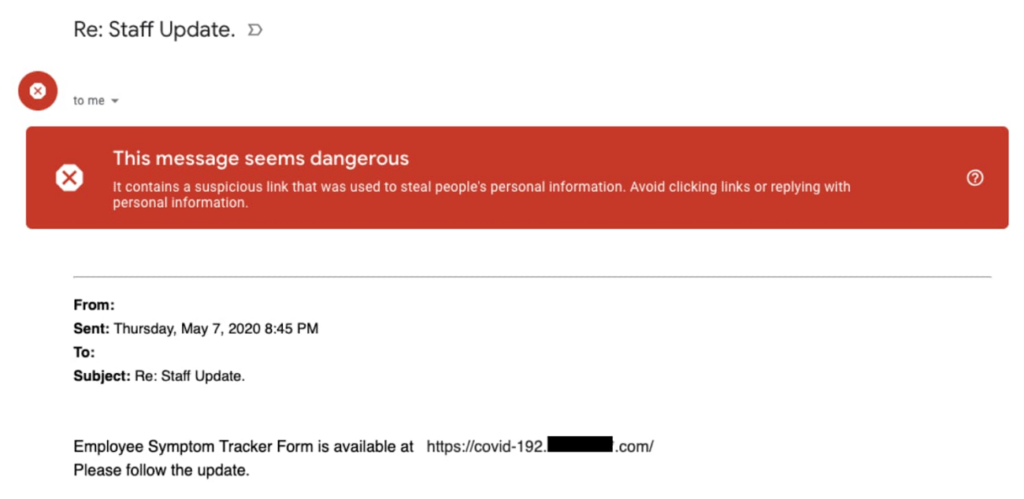
See Also: ZEE5.com hacked: Hackers claim to have stolen data from the popular OTT platform
The United Kingdom:
Hackers are impersonating Small Business Grant Fund (SBGF), a UK Government’s initiative to help businesses get through the COVID-19 crisis.
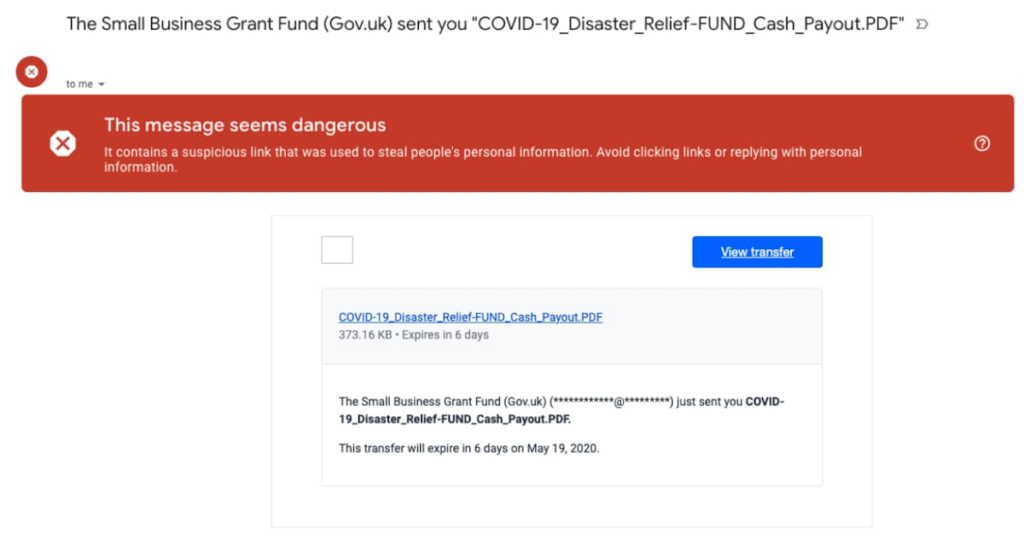
“These attackers often try to masquerade as Google, as well”.
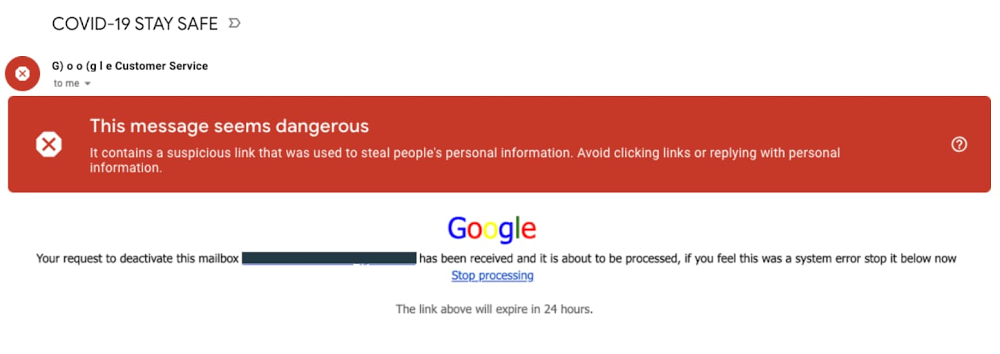
Brazil:
With the increasing popularity of video-on-demand and OTT platform services, Google also saw attackers targeting people by phishing attempts.
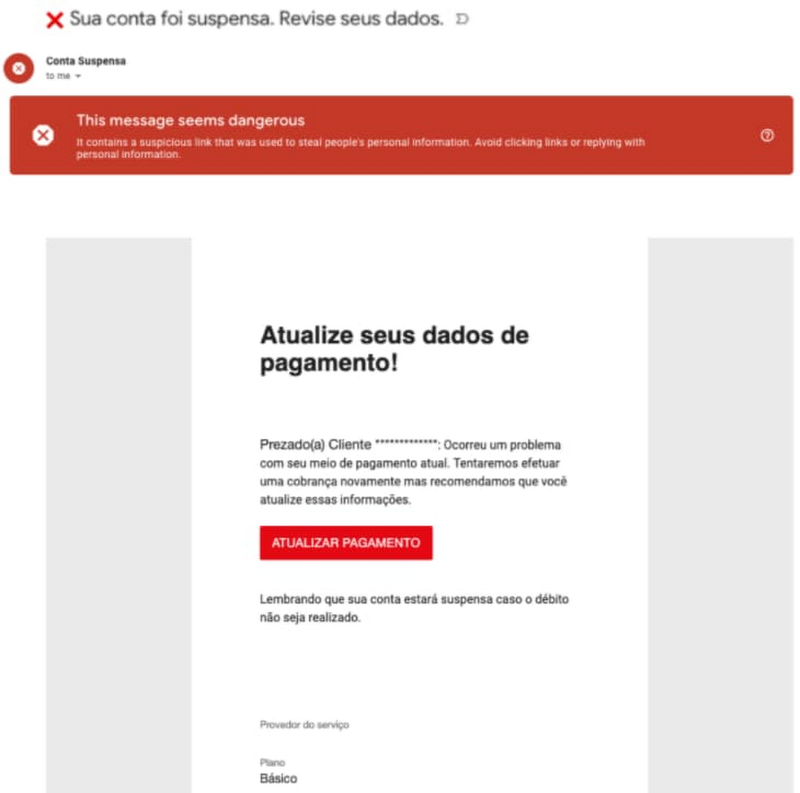
“We’ve put proactive monitoring in place for COVID-19-related malware and phishing across our systems and workflows. In many cases, however, these threats are not new—rather, they’re existing malware campaigns that have simply been updated to exploit the heightened attention on COVID-19.” reads the report published by Google.
See Also: Cybercriminals are using the World Health Organization’s name to distribute fake Coronavirus e-book
“While we’ve put additional protections in place, our AI-based protections are also built to naturally adapt to an evolving threat landscape, picking up new trends and novel attacks automatically”.
“These protections, newly developed and already existing, have allowed us to react quickly and effectively to COVID-19-related threats, and will allow us to adapt quickly to new ones,” Google concluded.

